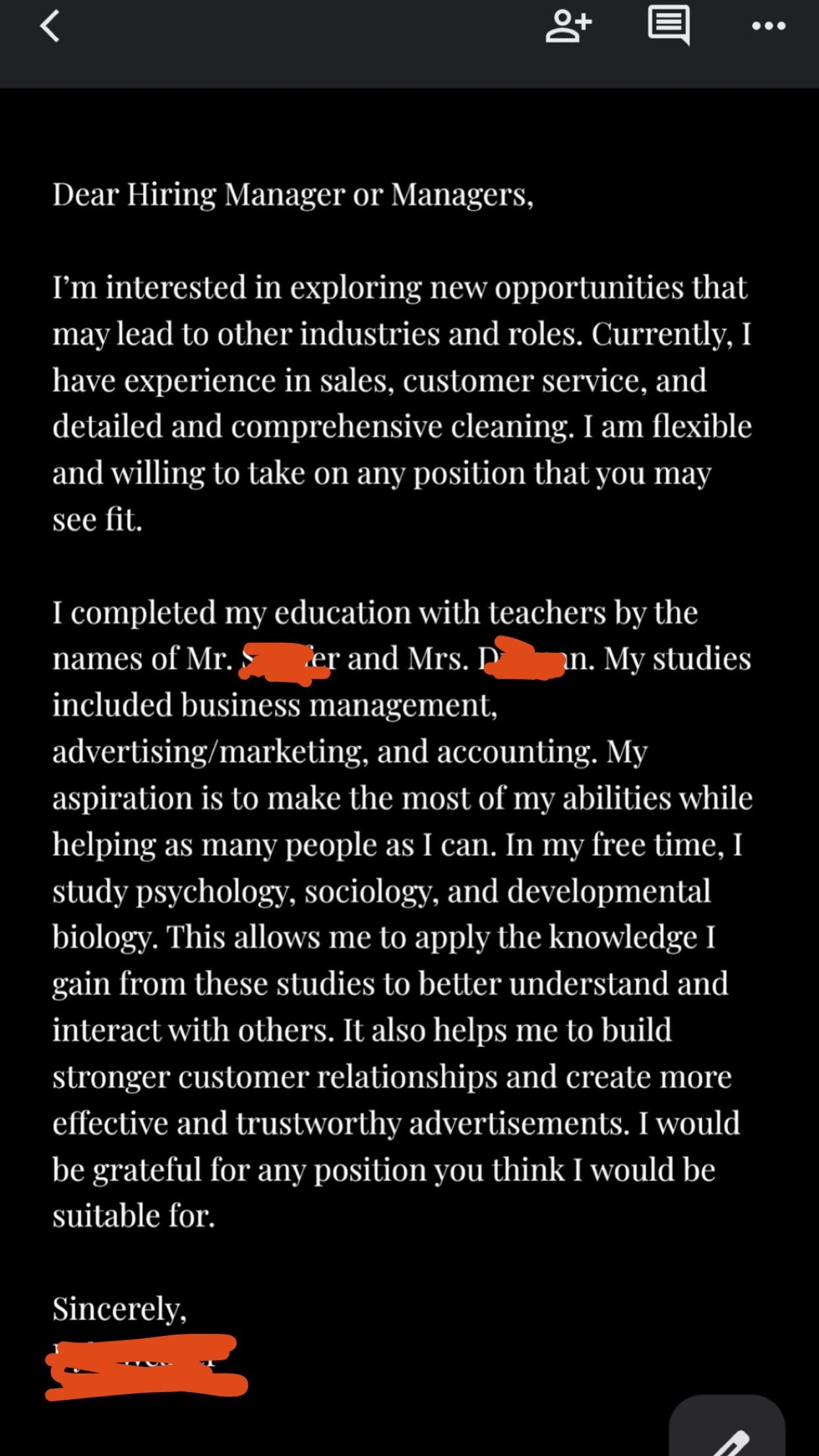Hi everyone.
For context I'm a software engineer who lives in America.
I've been job hunting for a couple of weeks now and have started to land some intro calls. The first one went great and ended up lasting nearly an hour.
Unfortunately this post isn't about the intro call I had that went well. This other one seemed to have the exact opposite response. The person interviewing me was UK based (so maybe there's some kind of cultural difference?
But anyway basically what had happened was we started out being pretty casual and chatty. Talking about the weather (the usual). She asks why I'm looking for work I tell her the company isn't doing so great and we've already gone through a number of layoffs. She doesn't really have a response to this other than something about it "being smart to look now". She asks what kind of notice I would need to give and I tell her the standard 2 weeks is fine given the situation at the company.
She asks me some questions about my skills and then I ask her if she wants a rundown of the projects I've worked on and my role in them at my current job. She obliged so I go into a high level on each on. The product, the client's buisness, and some high level architecture to (hopefully) hit the buzzwords she's looking for. I even hedge a little bit here and apologize for talking her ear off, but she confirms it's all good stuff.
Anyway, she asks if I'm okay with the salary range on the listing and asks what I'm looking for next. I give her some blurb about how I've been getting more and more into data modeling and architecture so I'd like to continue that route. (She doesn't really say anything). Then she pivots totally and asks if I'm self taught and wants to know my story (seemingly interested). I give her the normal story about being a struggling worker shortly after graduation and this that and the other thing. She tells me she thinks it's fascinating to learn everyone's different perspectives. (Which imo is a green flag right?)
But then at that point she's like "alright. Thanks for your time. It was nice talking with you. I'll speak with the team and see what they think. Get back to you Monday?" So obviously I'm a little shocked at the abrupt ending (it has been a total of 15 minutes) but I echo her words and we wave good bye. (She didn't even ask me if I had questions!)
SUMMARY: the meeting felt very short and had a lot less chit-chat than I'm use to. If they were American I would mark the interview down as a failure, but I wanted to ask here if anyone has experience interviewing with a British company? Am I missing something? Should I have focused less on the projects? Is there some British social norm I'm not aware of? 15 minutes feels painfully short even for an HR call

